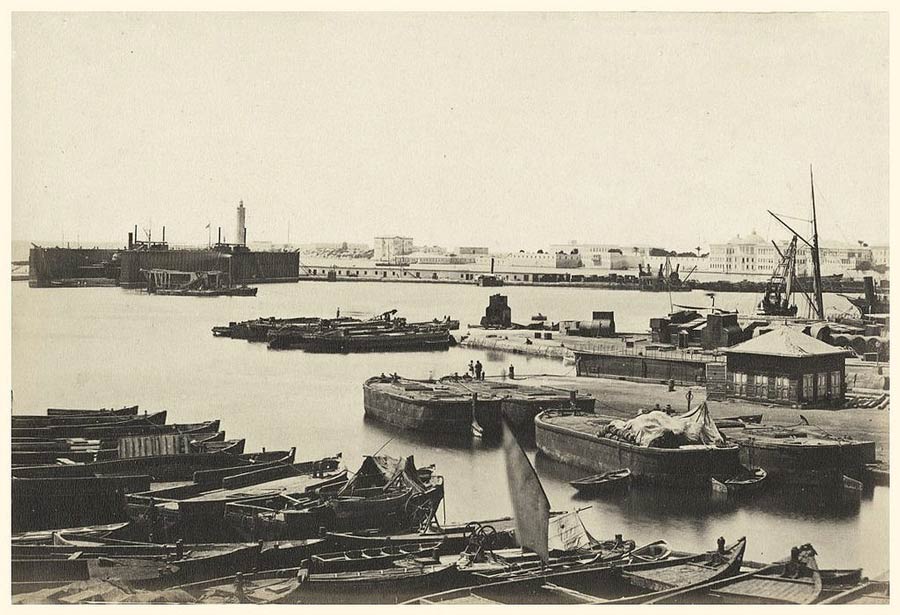The views expressed in our content reflect individual perspectives and do not represent the authoritative views of the Baha'i Faith.
I’d like you to meet Dr. Faris Effendi, a physician from Syria who became the first Christian Baha’i.
The tale of how Dr. Effendi came to discover Baha’u’llah as the one whom Christ had foretold—in spiritual and symbolic fulfillment of Christ’s prophecies—is quite a story.
In August, 1868, Baha’u’llah, a prisoner of the Ottoman Empire, was exiled from Edirne (formerly known as Adrianople) to Gallipoli, and from there to the prison-city of Akka (today, “Acre” or “Akko”) in Palestine (now Israel).
On the morning of Friday, August 21, 1868, Baha’u’llah and his entourage—prisoners, one and all—were placed aboard a steamship, an Austrian-Lloyd liner. The exiles, 72 in number according to one account, were overseen by their official military escort, composed of two officers and ten soldiers.
Aboard the ship, Baha’u’llah, in jest, spoke to his companions, saying: “Would it not be a treat if the liner should sink?” He hastened to add—with utter confidence and evident foreknowledge—this reassurance: “But it will not sink, even if it is battered by all the waves.”
At first, according to one account, Baha’u’llah and his fellow prisoners did not know their destination. All they were told was that they were being taken to “an unknown prison in an unknown land.” (See Hasan M. Balyuzi, Bahá’u’lláh: The King of Glory (Oxford: George Ronald, 1980), p. 264.) Later on, the Baha’i exiles were told that their destination was Akka.
The conditions aboard the ship were unspeakable, later described as “eleven days of horror.” With little food, crowded decks and inadequate space to even sleep, most of the exiles were “very ill indeed.” One of the companions fell sick and was rushed to the hospital in Smyrna, where he died. When he went ashore, he was accompanied by Abdu’l-Baha, who arranged for a simple funeral.
A few days later, on the morning of Thursday, August 27, 1868, the Austrian steamship arrived in the port of Alexandria. There, Baha’u’llah and his companions were transshipped to another Austrian-Lloyd steamer.
Meanwhile, unknown to the exiles themselves, Nabil-i Aʿẓam, one of the nineteen Apostles of Baha’u’llah and an eminent Baha’i historian, went to Egypt to appeal to the Turkish viceroy for the release of seven or eight other Baha’is imprisoned there. (See Shoghi Effendi, God Passes By, p. 178.) No one among the Baha’is knew exactly where those believers were imprisoned in Alexandria.
When the Austrian steamer set anchor in the Bay of Alexandria, several of the Baha’i exiles went ashore to purchase supplies. By chance, the steward, Aqa Muhammad-Ibrahim-i-Nazir, passed by the prison. Nabil, looking out, recognized the steward and shouted out to him.
In that prison, Nabil had met a Christian, who tried to “save” Nabil’s soul by converting him to Christianity. But the tables quickly turned, according to Nabil: “A physician was there in that prison. He tried to convert me to the Protestant Faith. We had long talks and he became a Baha’i.” This was Dr. Faris Effendi, also known as “Faris the Syrian,” who was imprisoned due to outstanding debts. Nabil goes on to say:
On the eighty-first day of my dream, from the roof-top of the prison-house, I caught sight of Aqa Muhammad-Ibrahim-i-Nazir, passing through the street. I called out to him and he came up. I asked him what he was doing there, and he told me that [Baha’u’llah] and the companions were being taken to Akka … and that he had come ashore in the company of a policeman to make some purchases.
The policeman, he said, “will not allow me to stop here much longer. I will go and report your presence here to [Abdu’l-Baha]. Should the ship stay here longer, I shall perhaps come and see you again.” He set my being on fire and went away.
The physician [Faris Effendi] was not there at the time. When he came, he found me shedding tears, and reciting these lines: “The Beloved is by my side and I am far away from Him; I am on the shore of the waters of proximity and yet deprived I am. O Friend! Lift me, lift me to a seat on the ship of nearness; I am helpless, I am vanquished, a prisoner am I.”
It was in the evening that Faris … came, and saw my distress. He said, “You were telling me that on the eighty-first day of your dream, you must receive some cause of rejoicing, and that today was that eighty-first day. Now, on the contrary, I find you greatly disturbed.”
I replied, “Truly that cause for rejoicing has come, but alas! ‘The date is on the palm-tree and our hands cannot reach it.’ He said, “Tell me what has happened, perhaps I could do something about it.”
And so I told him that [Baha’u’llah] was on that boat. He too, like me, was greatly disturbed, and said: “Were the next day not a Friday, and the Seraye closed, we could, both of us, have got permission to board the ship and attain His presence. But still, something can be done. You write whatever you wish. I will also write. Tomorrow, one of my acquaintances is coming here. We will get these letters to him to take to the liner.”
I wrote my story and gathered together all the poems I had composed in the prison. Faris, the physician, also wrote a letter and stated his great sorrow. It was very touching. All of these he put in an envelope, which he gave to a young watch-maker named Constantine, to deliver early in the morning. I gave him the name of Khadim [Mirza Aqa Jan] and some others of the companions, told him how to identify them, and impressed on him not to deliver the envelope until he had found one of them.
He went out in the morning. We were looking from the roof-top. We first heard the signal, and then the noise of the movement of the ship, and were perplexed, lest he had not made it. Then the ship stopped, and started again after a quarter of an hour. We were on tenterhooks, when suddenly Constantine arrived. He handed me an envelope and a package in a handkerchief, and exclaimed, “By God! I saw the Father of Christ!”
Faris, the physician, kissed his eyes and said, “Our lot was the fire of separation, yours was the bounty of gazing upon the Beloved of the World.” – Nabil-i Aʿẓam, from his unpublished history, translated by H.M. Balyuzi, Baha’u’llah, the King of Glory, pp. 267–268.
Imagine how astonished Constantine the Watch-Maker was in beholding Baha’u’llah for the very first time! That first impression became a lasting impression, when the young Constantine—thunderstruck with awe and admiration—exclaimed to Faris: “By God! I saw the Father of Christ!”
This was Friday, August 28, 1868. Three days later, Faris was released from prison, as promised by Baha’u’llah. The second Austrian steamer, with Baha’u’llah and his companions on board, departed for Haifa.

















Comments
Sign in or create an account
Continue with Googleor